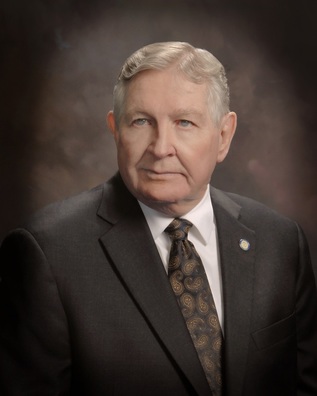
As I write this article our country is celebrating the fourth of July or Independence Day. The question came to me “Why do we celebrate the fourth of July”? This date should remind us of the freedoms we enjoy because of the brave men and women who fought the British government for the privilege of being free and giving us an independent America. The signers of the “Declaration of Independence” were courageous men who pledged their lives, their fortunes, their future and their sacred honor for the cause of freedom and independence. Most of these brave men lost everything and many lost their lives in the pursuit of the freedoms we now enjoy as free Americans. Also many of the signers were Freemasons.
Some of the signers of the Declaration of Independence were from South Carolina. They were Thomas Heyward, Jr., Edward Rutledge and Arthur Middleton. They were captured by the British during the Charleston Campaign in 1780. They were held prisoners in dungeons at the St. Augustine Prison until their exchange a year later.
Independence Day is associated with fireworks, cook-outs, parades, family reunions, ball games, speeches, concerts and other ceremonies, as well as other public and private celebrations of the history of our government and traditions of the United States. Independence Day is the birthday and National Day of Celebration of the United States.
At the bombardment of Fort McHenry by ships of the British Navy in the war of 1812, Francis Scott Key, a thirty-five year old lawyer and amateur poet, was on one of those British ships trying to secure the release of Dr William Beanes, a prisoner of the British. As they watched the shelling of Ft. McHenry throughout the night, Key penciled a poem describing what he was witnessing. The poem was published in the Baltimore Patriot with the title “The Defense of Fort McHenry.” The poem became known as “The Star Spangled Banner.” Key’s poem was declared in 1931 by the U.S. Congress as the official anthem of the United States. A Mason named John Stafford Smith set the poem to music to the tune of an old English tune called “To Anacreon in Heaven” a difficult melody with a large vocal range sometime between 1770 and 1775. We are more familiar with the first stanza, but the anthem contains four. In indignation over the start of the American Civil War, Oliver Wendell Holmes, Sr. added a fifth stanza to the song in 1861 which appeared in songbooks of the era.
I hope that as you celebrated the “Fourth of July with your families and friends that you kept in mind that we are free because of the sacrifice of so many brave and honorable men.
May God bless us, our Fraternity and pray that He will bless The United States of America.
Sincerely and Fraternally,
William B. Rogers
Grand Master
Some of the signers of the Declaration of Independence were from South Carolina. They were Thomas Heyward, Jr., Edward Rutledge and Arthur Middleton. They were captured by the British during the Charleston Campaign in 1780. They were held prisoners in dungeons at the St. Augustine Prison until their exchange a year later.
Independence Day is associated with fireworks, cook-outs, parades, family reunions, ball games, speeches, concerts and other ceremonies, as well as other public and private celebrations of the history of our government and traditions of the United States. Independence Day is the birthday and National Day of Celebration of the United States.
At the bombardment of Fort McHenry by ships of the British Navy in the war of 1812, Francis Scott Key, a thirty-five year old lawyer and amateur poet, was on one of those British ships trying to secure the release of Dr William Beanes, a prisoner of the British. As they watched the shelling of Ft. McHenry throughout the night, Key penciled a poem describing what he was witnessing. The poem was published in the Baltimore Patriot with the title “The Defense of Fort McHenry.” The poem became known as “The Star Spangled Banner.” Key’s poem was declared in 1931 by the U.S. Congress as the official anthem of the United States. A Mason named John Stafford Smith set the poem to music to the tune of an old English tune called “To Anacreon in Heaven” a difficult melody with a large vocal range sometime between 1770 and 1775. We are more familiar with the first stanza, but the anthem contains four. In indignation over the start of the American Civil War, Oliver Wendell Holmes, Sr. added a fifth stanza to the song in 1861 which appeared in songbooks of the era.
I hope that as you celebrated the “Fourth of July with your families and friends that you kept in mind that we are free because of the sacrifice of so many brave and honorable men.
May God bless us, our Fraternity and pray that He will bless The United States of America.
Sincerely and Fraternally,
William B. Rogers
Grand Master
 RSS Feed
RSS Feed




